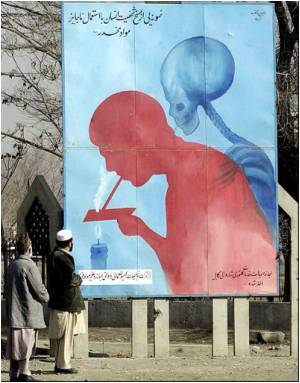With an increase in synthetic drug use, the UN has warned of the threat this poses to the developing world.

In the last two years, the land used for opium cultivation worldwide has shrunk by 23 percent, it noted, while coca cultivation, most of it in the Andes and vital for cocaine and heroin production, has dropped by 28 percent in the last decade.
On the flip-side however, the global number of users of amphetamine-type stimulants (ATS) -- between 30 and 40 million -- was soon expected to top the combined number of opiate and cocaine users, the UNODC warned.
"We will not solve the world drugs problem if we simply push addiction from cocaine and heroin to other addictive substances and there are unlimited amounts of them, produced in mafia labs at trivial costs," director Antonio Maria Costa said.
With short trafficking routes -- ATS are often produced close to their target market -- and with raw materials readily and legally available, these drugs were harder to seize, the office noted.
While cocaine consumption has fallen significantly in the United States, the number of users in Europe has doubled in the last decade to 4.1 million in 2008, shifting trafficking routes with disastrous consequences for regional security and drug use in developing countries, the UNODC also said.
Advertisement
Developing countries were increasingly falling prey to drugs, the office noted: heroin consumption was up in eastern Africa, cocaine use had increased in West Africa and South America, and production of synthetic drugs was also rising in Southeast Asia and the Middle East.
While users in rich countries had the necessary facilities to help them overcome their addiction, this was not the case for poorer nations, the UNODC chief said, calling for universal access to drug treatment.
In 2008, the last year for which data was available, only a fifth of drug addicts had access to treatment, leaving some 20 million users worldwide without care, the report said.
Drug addiction should be handled as a health issue, rather than an offence punishable by jail time, or even execution, it added.
"Just because people take drugs, or are behind bars, this doesn?t abolish their rights."
"I appeal to countries where people are executed for drug-related offences or, worse, are gunned down by extra-judicial hit squads, to end this practice," Costa urged.
Cannabis meanwhile remained the most widely produced and consumed drug, being grown in almost every country and smoked by between 130 and 190 million people every year, the UNODC found.
Source-AFP










